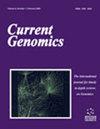基于基因组序列处理模型的疾病识别研究与分析
IF 1.4
4区 生物学
Q4 BIOCHEMISTRY & MOLECULAR BIOLOGY
引用次数: 0
摘要
人类基因序列被认为是不同身体状况综合信息的主要来源。各种各样的疾病,包括癌症、心脏问题、大脑问题、遗传问题等,可以通过有效的基因组序列分析来预防。研究人员提出了不同配置的机器学习模型来处理基因组序列,每种模型的性能各不相同。适用性的特点。使用生物启发优化的模型通常较慢,但具有优越的增量性能,而使用一次性学习的模型可以实现更高的瞬时精度,但无法扩展到更大的疾病集。由于这些变化,基因组系统设计者很难确定适合其特定应用的最佳模型。特定于性能的用例。为了克服这个问题,本文讨论了不同基因组处理模型在功能上的细微差别、特定于应用的优势、特定于部署的限制和上下文未来范围等方面的详细调查。基于此讨论,研究人员将能够为他们的功能用例确定最佳模型。本文还比较了在其定量参数集方面审查的模型,其中包括,分类的准确性,分类大长度序列所需的延迟,精度水平,可扩展性水平和部署成本,这将有助于读者选择部署特定的模型为他们的上下文临床场景。本文还评估了一个新的基因组处理效率等级(GPER)为每个这些模型,这将使读者能够识别模型具有更高的性能和低开销下的实时场景。本文章由计算机程序翻译,如有差异,请以英文原文为准。
A Study and Analysis of Disease Identification using Genomic Sequence Processing Models: An Empirical Review
: Human gene sequences are considered a primary source of comprehensive information about different body conditions. A wide variety of diseases including cancer, heart issues, brain issues, genetic issues, etc. can be pre-empted via efficient analysis of genomic sequences. Researchers have proposed different configurations of machine learning models for processing genomic sequences, and each of these models varies in terms of their performance & applicability characteristics. Models that use bioinspired optimizations are generally slower, but have superior incrementalperformance, while models that use one-shot learning achieve higher instantaneous accuracy but cannot be scaled for larger disease-sets. Due to such variations, it is difficult for genomic system designers to identify optimum models for their application-specific & performance-specific use cases. To overcome this issue, a detailed survey of different genomic processing models in terms of their functional nuances, application-specific advantages, deployment-specific limitations, and contextual future scopes is discussed in this text. Based on this discussion, researchers will be able to identify optimal models for their functional use cases. This text also compares the reviewed models in terms of their quantitative parameter sets, which include, the accuracy of classification, delay needed to classify large-length sequences, precision levels, scalability levels, and deployment cost, which will assist readers in selecting deployment-specific models for their contextual clinical scenarios. This text also evaluates a novel Genome Processing Efficiency Rank (GPER) for each of these models, which will allow readers to identify models with higher performance and low overheads under real-time scenarios.
求助全文
通过发布文献求助,成功后即可免费获取论文全文。
去求助
来源期刊

Current Genomics
生物-生化与分子生物学
CiteScore
5.20
自引率
0.00%
发文量
29
审稿时长
>0 weeks
期刊介绍:
Current Genomics is a peer-reviewed journal that provides essential reading about the latest and most important developments in genome science and related fields of research. Systems biology, systems modeling, machine learning, network inference, bioinformatics, computational biology, epigenetics, single cell genomics, extracellular vesicles, quantitative biology, and synthetic biology for the study of evolution, development, maintenance, aging and that of human health, human diseases, clinical genomics and precision medicine are topics of particular interest. The journal covers plant genomics. The journal will not consider articles dealing with breeding and livestock.
Current Genomics publishes three types of articles including:
i) Research papers from internationally-recognized experts reporting on new and original data generated at the genome scale level. Position papers dealing with new or challenging methodological approaches, whether experimental or mathematical, are greatly welcome in this section.
ii) Authoritative and comprehensive full-length or mini reviews from widely recognized experts, covering the latest developments in genome science and related fields of research such as systems biology, statistics and machine learning, quantitative biology, and precision medicine. Proposals for mini-hot topics (2-3 review papers) and full hot topics (6-8 review papers) guest edited by internationally-recognized experts are welcome in this section. Hot topic proposals should not contain original data and they should contain articles originating from at least 2 different countries.
iii) Opinion papers from internationally recognized experts addressing contemporary questions and issues in the field of genome science and systems biology and basic and clinical research practices.
 求助内容:
求助内容: 应助结果提醒方式:
应助结果提醒方式:


